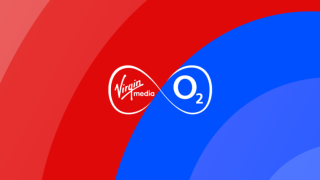Research out today identified it as a market leader in the sector, along with China Unicom, Orange, China Mobile and Vodafone.
Specifically, Deutsche Telekom was recognised for offering "the most diversified product portfolio, supporting four different deployment models to cater to very heterogeneous enterprise requirements and provide flexible pricing models".
The assessment was published by market advisory firm ABI Research. It compared and ranked 20 mobile network operators and their enterprise 5G offerings based on 12 criteria to assess both innovation and implementation capabilities.
"Our assessment clearly identifies key aspects that network operators should consider to realise their enterprise 5G ambitions," says Leo Gergs, senior analyst for telco enterprise strategies and private networks at ABI Research.
"At the heart of this, carriers need to understand that enterprises do not see value in deploying 5G connectivity as such, but in the applications it will enable. Therefore, network operators need to integrate cellular connectivity into a much wider technology platform, including Artificial Intelligence and data storage and device management capabilities. To be able to offer this in an attractive pricing structure, it is imperative that network operators depart from a connectivity-focused business model and fully embrace either a Network-as-a-Service or Platform-as-a-Service model."
In total, 20 network operators were ranked across three tiers. Along with Deutsche Telekom the market leaders were named as China Unicom, Orange, China Mobile and Vodafone, while Verizon, Telefonica, Telia, AT&T, Singtel and BT were identified as "mainstream operators". KT, KDDI, LGU+, NTT-Docomo, STC, Etisalat, Bharti Airtel, Telstra and Softbank were highlighted as "followers".
All were assessed against 12 criteria, including the customisability of the offering, and the number of supported deployment models.
Scalability and modularity evaluated whether and how 5G connectivity is included in a comprehensive end-to-end digitisation platform. To assess the flexibility of business models, the number of monetisable services was considered, while the total of joint-innovation labs determined ecosystem influence. To assess standardisation and technology contributions, the competitive ranking evaluated the number of network slicing trials per operator and contributions to 3GPPs Working Group SA6.
However, the publication of this research coincided with another report, which found that the share of enterprise 5G projects awarded to CSPs is declining, having dropped from 21% in 2020 to 16% this year.
Alternative service providers, meanwhile, increased their share of enterprise 5G deals from 7% last year to 27% this year.
Commenting on ABI's insight, Gergs added: "This assessment serves as a critical call to action to mobile network operators around the globe. For the operators considered in this assessment, it highlights critical aspects that need to be refined in their enterprise strategy. For remaining operators, it should act as a wake-up call to get their enterprise offerings in place sooner rather than later.
"Enterprises are still waiting for the 5G enabled capabilities that were promised to them more than two years ago. This disappointment makes them consider non-cellular technology alternatives. Carriers must therefore understand that the window of opportunity is closing for CSPs to gain traction in the enterprise 5G world," Gergs concluded.





